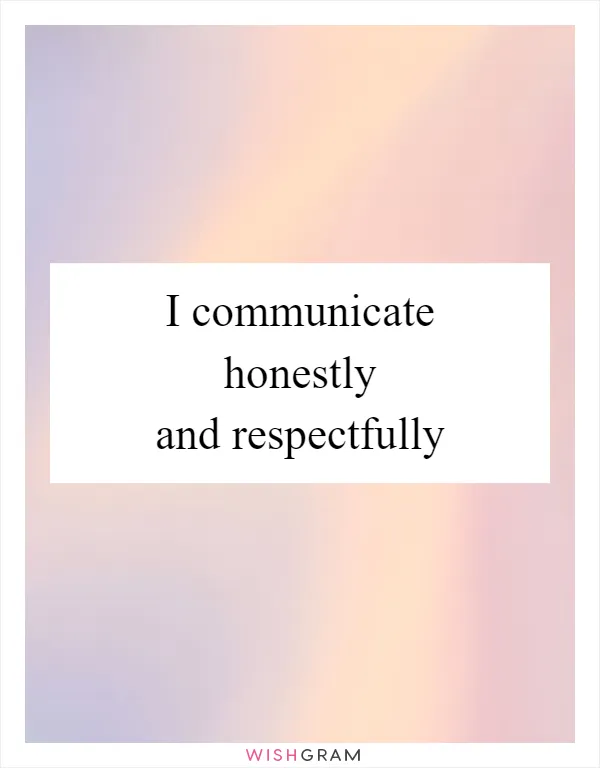I communicate honestly and respectfully
The affirmation "I communicate honestly and respectfully" can have a significant impact on your life. When you communicate honestly and respectfully, you build trust and strengthen relationships with others. It also helps you to express your thoughts and feelings in a clear and concise manner, which can lead to better outcomes in both personal and professional situations.
Honest communication is essential in any relationship. When you communicate honestly, you are being truthful and transparent with the other person. This can help to build trust and respect between you and the other person. It also helps to avoid misunderstandings and conflicts that can arise from miscommunication.
Respectful communication is equally important. When you communicate respectfully, you are showing consideration and empathy for the other person. This can help to create a positive and supportive environment where everyone feels valued and heard. It also helps to avoid hurtful or offensive language that can damage relationships.
To communicate honestly and respectfully, it is important to listen actively to the other person. This means paying attention to what they are saying and responding in a way that shows you understand their perspective. It also means being open and honest about your own thoughts and feelings, while still being respectful of the other person's point of view.
One way to practice honest and respectful communication is to use "I" statements. Instead of blaming or accusing the other person, focus on your own thoughts and feelings. For example, instead of saying "You never listen to me" try saying "I feel like my opinions aren't being heard". This approach can help to avoid defensiveness and encourage a more productive conversation.
Another important aspect of honest and respectful communication is to avoid judgment and criticism. Instead of attacking the other person, focus on the behavior or situation that is causing the issue. For example, instead of saying "You're always so lazy" try saying "I feel frustrated when I have to do all the work myself". This approach can help to keep the conversation focused on finding a solution, rather than assigning blame.
